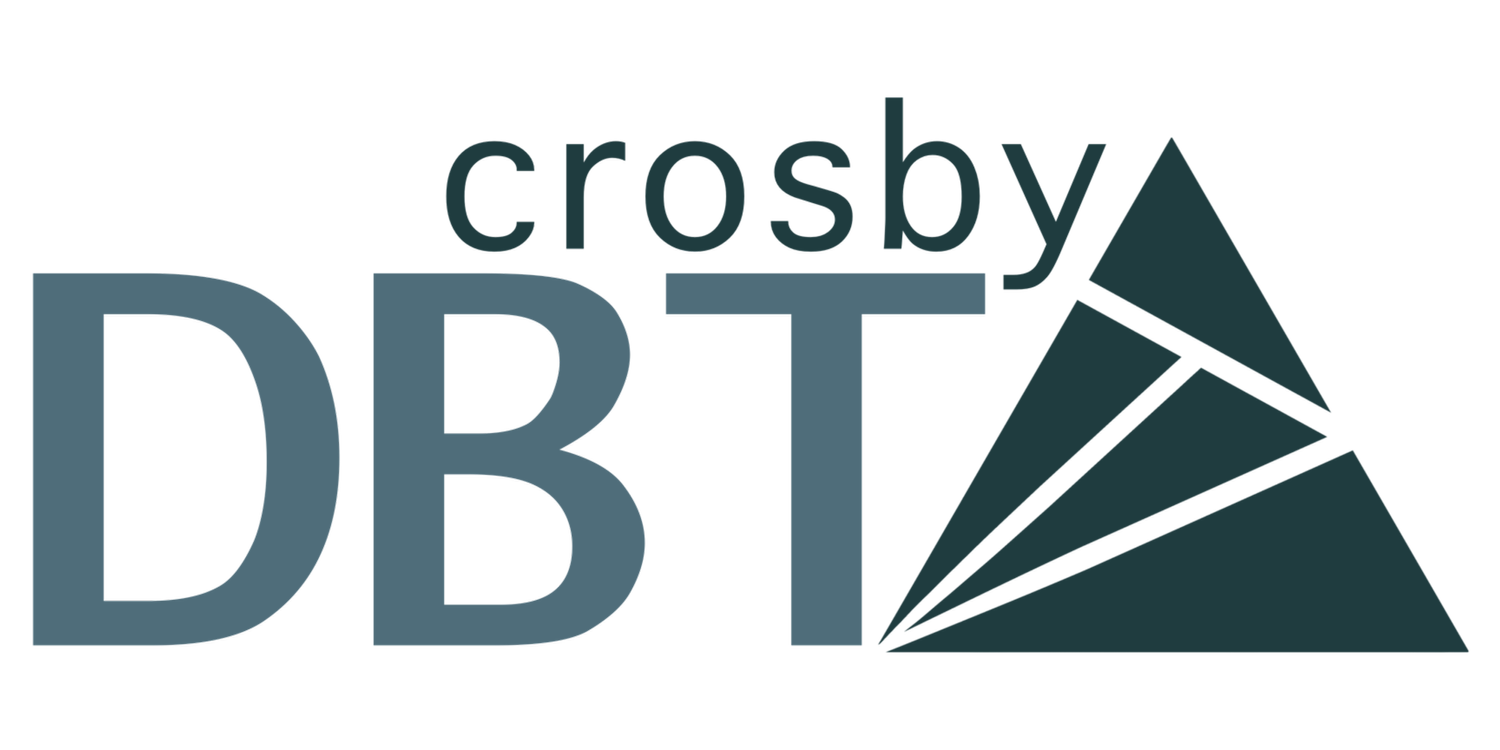Navigating Tough Conversations: 4 Key Factors to Consider in DBT Interpersonal Effectiveness
Ever find yourself asking questions like:
“Should I bring this up or just let it go?”
“Am I being too assertive—or not assertive enough?”
“How can I stand up for myself without making things worse?”
These are common concerns in relationships, and DBT (Dialectical Behavior Therapy) offers a structured way to think them through.
When it comes to interpersonal effectiveness, DBT teaches us to slow down and assess the situation before acting. There are four main factors to consider—each one helping you decide how to communicate based on what really matters in the moment.
Let’s walk through each one.
1. The Importance of Your Goal
Ask yourself:
“How important is it that I get what I want in this situation?”
This is about objective effectiveness—whether you’re trying to make a request, ask for a change, say no, or solve a problem.
Consider:
Is this a boundary issue?
Will I feel resentful or regretful if I don’t speak up?
Does this impact my well-being, safety, or values?
💡 The more important your goal, the more firmly and clearly you may need to assert yourself.
2. The Importance of the Relationship
Ask yourself:
“How much do I value this relationship—and how might this conversation affect it?”
Sometimes, we hold back to protect the relationship. Other times, we speak up in ways that unintentionally damage it.
Consider:
Is this someone I see often or rely on?
Do I want to maintain trust or closeness?
How might they react if I push too hard?
💡 If preserving the relationship is a priority, a gentler approach (using the GIVE skill) may be the wisest choice.
3. The Other Person’s Capabilities
Ask yourself:
“Is the other person actually able to give me what I want or handle what I’m saying?”
In DBT, we learn to be skillful—not just right. Sometimes we need to adjust our approach based on what the other person is realistically able to offer or tolerate.
Consider:
Are they in the right mindset or emotional state?
Do they have the resources or authority to help?
Is this a good time?
💡 When the other person is overwhelmed or limited, it might make sense to lower your expectations, soften your tone, or delay the conversation.
4. The Long-Term vs. Short-Term Consequences
Ask yourself:
“What will the short-term and long-term effects of this conversation be?”
Sometimes it feels easier to avoid confrontation or just give in. But DBT reminds us to look beyond immediate discomfort.
Consider:
Will staying silent cause long-term resentment or burnout?
Could pushing too hard cause damage I’ll regret?
What choice aligns best with my values and goals over time?
💡 Wise decisions often involve tolerating short-term discomfort to support long-term well-being—both yours and the other person’s.
Why These Factors Matter
These four factors help you pause and respond thoughtfully instead of reacting impulsively. By weighing them mindfully, you can decide whether to:
Be assertive or gentle
Hold your boundary or compromise
Speak now or wait for a better time
This balance between self-respect, relationship care, and situational awareness is the heart of interpersonal effectiveness in DBT.
A Real-Life Example
Scenario: Your coworker often interrupts you in meetings. It’s frustrating, but you’re not sure how to handle it.
You consider:
Goal importance: You want to be heard and taken seriously. (+1)
Relationship: You want to keep a professional working relationship. (+1)
Their capability: They may not realize they’re doing it. (+1)
Consequences: Speaking up respectfully now could prevent resentment later. (+1)
With all factors considered, you decide to have a calm, respectful conversation using the DEAR MAN skill—assertive, but not aggressive.
Recap: The 4 Factors in DBT Interpersonal Effectiveness
Goal Importance – How much does this matter to me?
Relationship Importance – How much do I value the relationship?
Other Person’s Capability – Can they give me what I want?
Long-Term Consequences – What are the short- vs. long-term outcomes?
When you take time to reflect on these before a conversation, you set yourself up to communicate with clarity, confidence, and compassion.
Final Thoughts
You don’t have to guess your way through difficult interactions.
DBT gives you tools—like these four factors—to help you act with intention, not just emotion.
The next time you're unsure whether to speak up, set a boundary, or stay silent, pause and ask:
"What’s most important here: my goal, the relationship, the other person’s limits, or the long-term outcome?"
That one moment of mindfulness can change everything.
